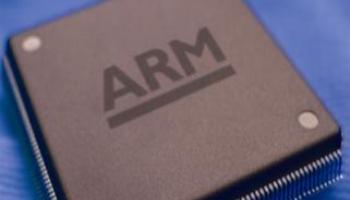

Smooth-Stone has announced a name change to Calxeda, as the start-up which is looking to build ARM-designed chips for low-power servers, continued its executive hiring spree.
The company, which announced $48 million (£30 million) in funding three months ago, also announced 16 November the hiring of three new executives.
Calxeda is expected to release samples of its SoC (system-on-a-chip) server processors next year and start manufacturing the chips in 2012. The multicore chips will be based on ARM’s Cortex-A9 processor design, which offer up to four cores per chip.
Calxeda is among a number of companies that are looking to drive the ARM chip designs into the data centre as enterprises look for ways to reduce costs on energy and space. ARM processor designs dominate the smartphone – such as Apple’s iPhone and devices based on Google’s Android operating system – and tablet markets, and some vendors are now looking at them for such environments as web servers and large, scale-out data centres.
Moving into the server space would bring it into more direct competition with the likes of x86 chip giants Intel and Advanced Micro Devices.
Karl Freund, a former marketing executive with HP who most recently was vice president of marketing and strategy for IBM’s System z mainframe business, is now Calxeda’s vice president of marketing. Enterprises worried about the rising costs of data centre power and space are demanding fast action from the tech industry, according to Freund.
Also coming to Calxeda are Bob Baughman, who had been with Polycom and Marvell and will be the company’s vice president of business development and sales, and Steve Beatty, a former executive with Freescale and SigmaTel, who will be vice president of manufacturing.
Calxeda CEO Barry Evans is echoing Freund’s comments that a major leap is needed to address power and space concerns of today’s enterprises.
“We believe the solution requires this order of magnitude improvement, literally ten times the energy efficiency, for half the price,” Evans said in a statement. “This is within our reach with technologies we are developing at Calxeda.”
Officials with ARM, whose chip designs are used by such manufacturers as Qualcomm, Samsung and Texas Instruments, are looking to give their customers the capabilities to move up into the data centre. As manufacturers start to adopt the Cortex-A9 design, ARM in September unveiled its Cortex-A15 design, formerly codenamed “Eagle.”
The Cortex-A15 design will offer several enhancements – including support for possibly as many as 16 cores, support for virtualisation and up to 1TB of memory – that will enable it to move into such enterprise products as servers and storage devices.
A growing number of tech companies are looking to offer new chips and system designs aimed at meeting the growing demand for high-performing servers that consume less energy than current products. Marvell officials earlier in November demonstrated their quad-core Armada XP chip, which runs at 1.6GHz and offers such enterprise-class features as up to 2MB of Level 2 cache, high-end networking ports and PCI-Express Gen 2.0 units. The Armada XP is based on the ARM v7 architecture, and will be aimed at such environments as Web servers, cloud computing and high-volume home servers.
In addition, SeaMicro is using Atom chips from Intel in its SM1000 servers, while Quanta Computer, an original design manufacturer, is packing 512 processing cores using chips from Tilera to build its systems.
Intel and AMD also are pushing down the power consumption of their x86 chips while increasing the performance.
TikTok opens e-commerce shopping in Germany, France, Italy as US future remains uncertain over divest-or-ban…
Discover expert insights on overcoming digital transformation challenges. Learn how to manage change, balance innovation,…
Microsoft drops data centre projects amounting to 2 gigawatts of power consumption as investors question…
SMIC sees revenues rise 27 percent for 2024, but profits fall nearly 50 percent amidst…
Google reassures developers Android to remain open source as it brings development entirely in-house, reduces…
NHS software services provider Advanced Computer Software Group fined £3m over ransomware breach that compromised…